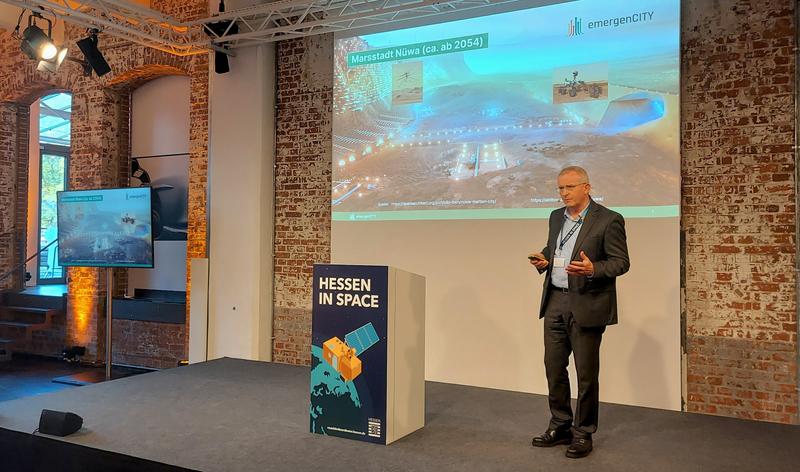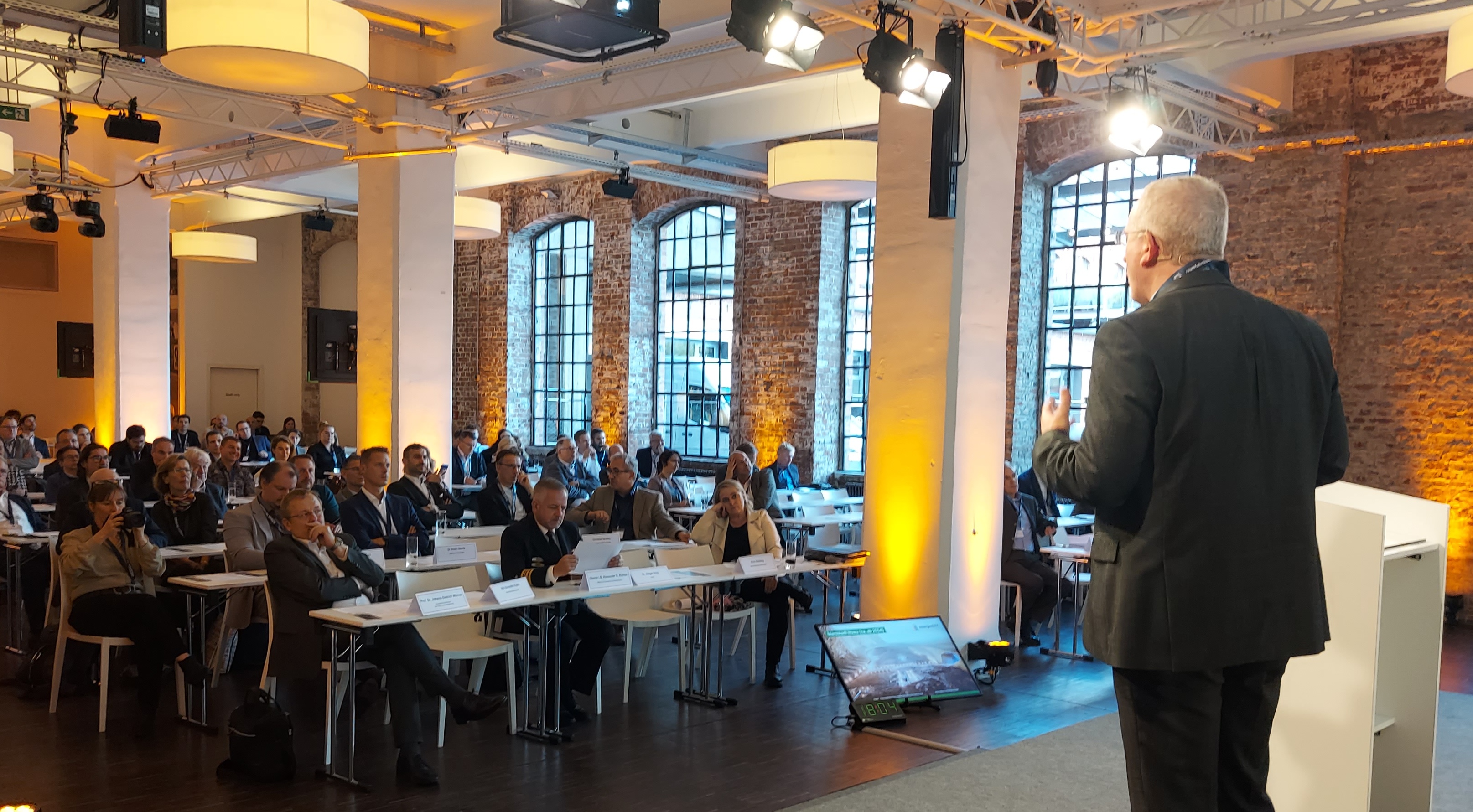Resilience for Terrestrial and Extraterrestrial Digital Cities
Oskar von Stryk presented emergenCITY at the “Hessen in Space” conference of the State Chancellery
Oskar von Stryk presented emergenCITY at the “Hessen in Space” conference of the State Chancellery

What will the cities of the future look like - and how can we make them resilient? emergenCITY board member Oskar von Stryk presented the LOEWE center to around 200 experts from science, business and administration at the third Hessen in Space conference, organized by the Hessian State Chancellery on 11th of October.
More and more people are living in cities. In 25 years, around two thirds of the world’s population will live in urban areas - and digital technologies such as cell phones and the internet play a decisive role in all parts of society and the economy. However, a more urban and digital lifestyle is also changing the understanding of cities themselves.
“Future cities are digital cities,” emphasized von Stryk in his presentation.
Cities, in which simple activities such as withdrawing money or going shopping are linked to a variety of information and communication technologies, harbor new potential for disruptions and failures - whether due to natural disasters, cyber-attacks or other crisis scenarios. In his Elevator Pitch, von Stryk made it clear that both emergenCITY’s multi-perspective basic research and interdisciplinary applied research are essential for developing resilience in the cities of the future. This requires patience.
In his lecture, he presented two concrete results: the eHUB and the Smart Control Center missions. The eHUB is a house equipped with photovoltaics that can act as a contact point and emergency power source for residents in the event of a prolonged power outage. The Smart Control Center provides real-time information from the city to support the emergency services. It uses stationary and mobile sensor data to create a digital twin of a city in crisis and make it visible in a four-dimensional visualization.
 emergenCITY-PI Oskar von Stryk presented the research center to experts. Photo: Simon Burgis, Institute of Flight Systems and Automatic Control (FSR)
emergenCITY-PI Oskar von Stryk presented the research center to experts. Photo: Simon Burgis, Institute of Flight Systems and Automatic Control (FSR)
This type of research on resilience of digital cities brings topics and competencies to the fore that can not only potentially work with satellites and space technologies. It could also be no less relevant for future cities in space. “Future extraterrestrial cities will be even more extremely digitalized and networked in all areas of critical infrastructure, supply and communication,” says the Professor of Simulation, System Optimization and Robotics at TU Darmstadt.
Hesse in Space connects players within the space sector from Hesse and beyond. This year, the organizers, the Head of the State Chancellery, State Secretary Benedikt Kuhn, and the Space Coordinator of the Hessian State Government Johann Dietrich Wörner, particularly emphasized the importance of space travel for security purposes on earth.